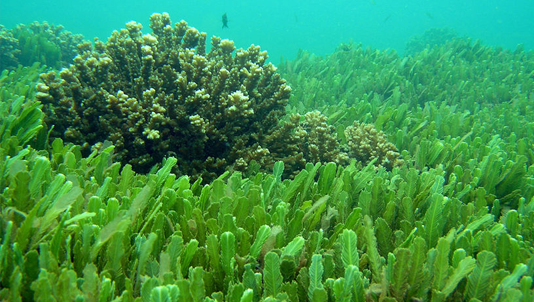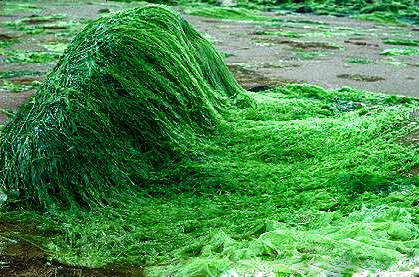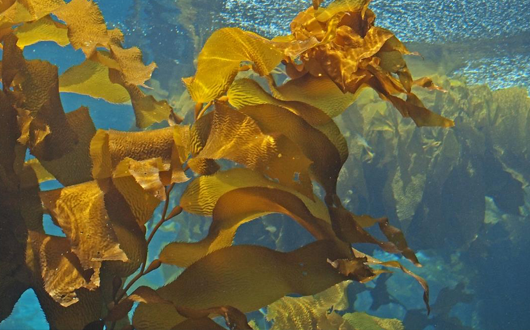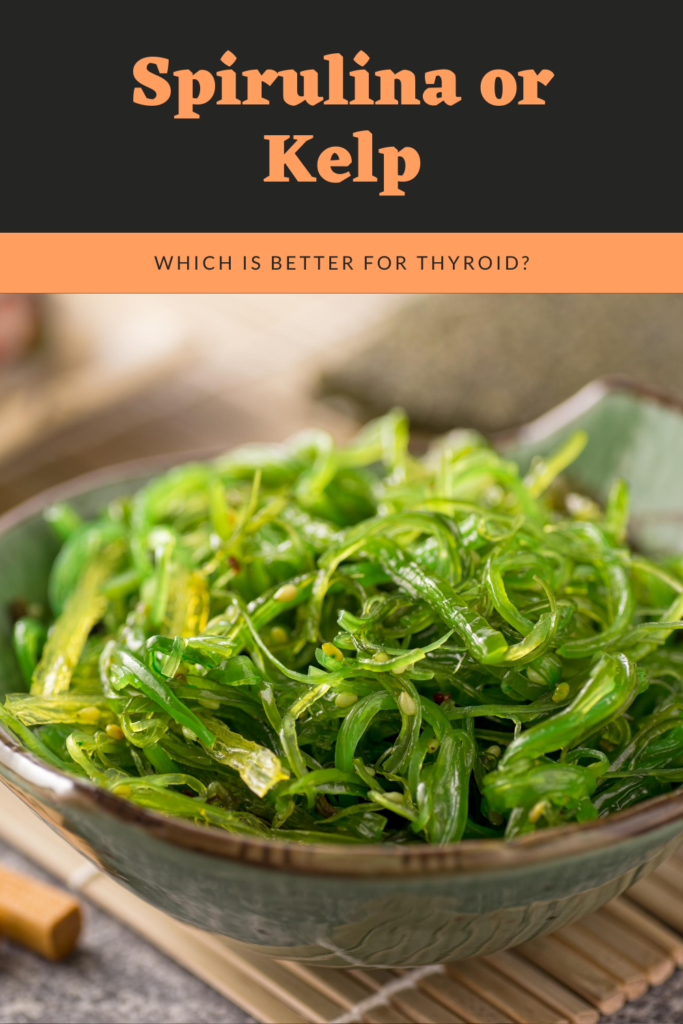
Over the years, more and more nutritional product manufacturers are turning to the oceans and lakes for sources of nutrition.
Kelp, a brown algae, is a rich source of iodine and may help to fight off infections. Spirulina, a blue-green algae that grows in warm alkaline water, is an incredibly beneficial source of nutrients.
Spirulina and Kelp For Thyroid?
Both spirulina and kelp have been hailed for their health benefits, but which one is better for Thyroid?
Both Spirulina & Kelp have Iodine. But Kelp has higher concentration of iodine, which is an important factor in fighting thyroid issues.
Since iodine is a mineral that the body requires to produce thyroid hormones, many people with an underactive thyroid use Kelp as a treatment.
It is recommended to consult your doctor before taking Kelp or Spirulina for Thyroid problems though.
Spirulina

Spirulina is a blue-green algae that contains both physocyanin (blue) and chlorophyll (green) pigmentation.
It contains roughly 65% essential amino acids and is considered to be a complete protein. Compared to beef which only has 22% protein, spirulina is a favorite source of protein for those who follow a vegan or vegetarian diet.
Spirulina also contains a wide range of minerals including iron, potassium, magnesium, sodium, phosphorus, and calcium as well as vitamins and phytonutrients.
In addition, spirulina is one of the few plant sources of vitamin B12, which is usually only found in animal tissues. Just a teaspoon of spirulina contains over 2 1/2 times the daily recommended amount of vitamin B12.
Benefits of Spirulina
Other than the plethora of nutrients that spirulina provides, it can also help to boost your overall health in several ways:
- Boosts energy levels
- Helps detoxify the body
- Strengthens the immune system
- Regulates blood sugar levels
- Promotes healthy skin, hair and nails
- Fights bad breath
Kelp

Kelp, commonly referred to as seaweed, grows along coastlines around the world. It is a rich source of vitamins and minerals, including some essential trace minerals.
Kelp contains a vast amount of vitamins, especially B vitamins, which are essential for cellular metabolism and providing your body with energy.
It also contains vitamins C and E, which are both strong antioxidants and promote blood vessel health. Minerals, such as calcium, boron and magnesium, which are necessary for strong bones and normal muscle function, can also be found in kelp.
Benefits of Kelp
- Helps regulate thyroid
- Can help with weight management
- Improves pH levels
- May fight off cancers
Kelp is also considered to be anti-viral, anti-inflammatory as well as anti-oxidant.
Which is Better For Overall Health & Thyroid?
Both kelp and spirulina are considered to be superfoods. Incorporating one or both of these foods could be beneficial to your health, depending on what you are looking to achieve.
In terms of overall nutrition however, spirulina tops kelp with its abundance of nutrients and health benefits.
The high content of iodine in kelp however, makes it a vital instrument in controlling thyroid issues.
Can you Take Spirulina and Kelp Together?
Yes, both Spirulina & Chlorella can be taken together. Thy together boasts complete protein and provide a wide array of vitamins and minerals.
In some cases, they can cause nausea and diarrhea. If this happens, reduce the dose or stop taking them.
Both kelp and spirulina come in a variety of forms, from capsule form to powder, making it easy to incorporate both of them into your daily routine.
Spirulina and kelp can be blended into smoothies or added to drinks quite easily, but don’t let the dark green color scare you! That’s just the chlorophyll in the spirulina.
Both kelp and spirulina in their powdered forms can also be used as a sort of seasoning salt when added to other spices. Sprinkle on to main courses, veggies or even popcorn!
Both kelp and spirulina are available as powders, liquids, tablets or capsules. The dosage used depends on whether they are being used as a general supplement or to treat specific illnesses.
Always consult a doctor when taking supplements.
Enjoyed Spirulina or Kelp: Which is Better For Thyroid?? Share it with your friends so they too can follow the Superfoodsliving journey.
Share on Pinterest
